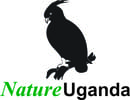AfriEvolve - Capacity Development for Green NGOs in Africa
‘AfriEvolve – Capacity Development for Green NGOs in Africa’ is a project led by NABU with financial support from BMZ and NABU. It is being implemented by three NGOs Nature Kenya – NK, Nature Uganda – NU, Nature Tanzalia- NT (East Africa cluster) and 3 local NGOs NATURAMA, SOS Forêts and Ghana Wildlife Society- GWS (West Africa cluster) located in Kenya, Uganda, Tanzania, Burkina Faso, Côte d’Ivoire, Ghana respectively. The aim of the project is to enable the six local East African and West African NGOs to use newly gained capacities for improved civil society cooperation and climate adaptation of smallholder agriculture. The project contributes to:
- Increased capacities of partners through tailored training and peer-to-peer learning
- Enhanced portfolio expertise in Climate-Smart Agriculture benefiting local farmers in 6 countries
- Regional cluster partners ‘collaboration, networking and political empowerment
AfriEvolve is conceived as a Pan-African co-support platform coordinated by NABU with six African green NGOs facilitating peer-to-peer learning exchanges and aiming to emulate capacity building among its members. The six partners have already collaborated to varying degrees within the BirdLife International network, some of them also on capacity building. BirdLife International is a global network of conservation organisations working to protect species, their habitats and global biodiversity, and to work with people towards sustainable use of natural resources. Two regional clusters (West and East Africa) have been formed each covering each organisations representing less/mid/more developed partners. The clusters are working in South-South exchange, peer-to-peer learning and mentoring for enhanced capacity development at organisational and staff level and for increased regional political impact on green topics.
The project intends to further develop and build up capacities for organisational development of the target NGOs, particularly the weaker ones and to establish two strong regional (East/West Africa) civil society networks (clusters) under the coordination of stronger NGOs (NK, NATURAMA). Capacity gaps in the target NGOs are to be closed and mutual learning within the two clusters are facilitated so that it contributes to the increase of organisational development of all six NGOs. The cluster members are closely linked geographically, ecologically and politically, sometimes working in transboundary ecosystems or protected areas. Some are working together to some extent, have similar needs and challenges, and have clear strengths and experiences that can be of great value for learning from each other. All NGOs are strongly motivated to share their experiences on a larger scale both with NGO and government partners within their borders and with other like-minded NGOs at the regional level.
All six NGOs also consider CSA as an appropriate approach to link conservation, climate change impacts and land use needs. In the course of the project’s development, all partners therefore developed pilot CSA projects in consultation with the selected local communities in:
- Yala Swamp, Kenya
- Echuya Forest Reserve, Uganda
- Amani Natural Forest Reserve in the East Usambara Forest, Tanzania
- Sourou Valley, Burkina Faso
- Azagny National Park, Côte d’Ivoire
- Mognori in Mole National park, Ghana
- Pilot site information for Uganda; Echuya Central Forest Reserve
Echuya Central Forest Reserve is a highland forest area at an altitude of 2,570 m in the Albertine Rift in western Uganda, covering about 4,000 ha. Echuya is located in one of the most densely populated and poorest agricultural regions of Uganda. The long-term conservation of the reserve depends directly on the surrounding population. NU has long-standing relationships with the local population, the government and forest management organisations (training of farmers in sustainable organic agriculture, marketing, income-generating activities) and has planned the measures for the present project together with the target group.
- Pilot Site Target Group for Uganda
In the Echuya Central Forest Reserve in Uganda, 500 members, organized in five Community Forest Management Associations (CFMA), and their families will benefit from the project measures. The CFMA groups represent communities living around the forest reserve. The beneficiaries are selected by the CFMA groups. Indirectly, at least 5,000 residents of the region will benefit from the impacts of the pilot project, which aims at forest protection and climate adaptation and thus the conservation of important ecosystem services, especially water.
- Pilot CSA planned activities for Uganda
In the Echuya Central Forest Reserve in Uganda, NU would like to establish agroforestry systems with perennial crops (e.g. passion fruit, ginger, garlic, livestock) and beekeeping with five forest community groups (Community Forest Management Associations). For this, meetings with members from forest adjacent communities are planned to sensitize/train them. Subsequently, they will be trained in the implementation of the planned CSA measures with agroforestry systems.








